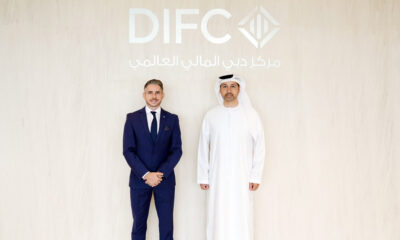News
Declining Gaming Revenues Bring Middle East Opportunities
The global gaming industry faces plenty of challenges, but the Middle East’s investments have resulted in growth opportunities and regional resilience.

Ask a casual observer about the state of the gaming industry, and they’ll likely tell you that it’s in fine health. After all, this vast landscape of big-studio and indie developers, consoles, and cloud-based services rakes in billions each year.
However, despite headline-grabbing news such as Microsoft’s recent $75 billion acquisition of Activision Blizzard, a closer examination reveals several underlying challenges. Despite initial surges during the pandemic, gaming usage and revenues have declined due to factors like inflation. Business Insider recently reported a 2.3% decrease in US gaming revenue in 2023 compared to the previous year, signaling a shift in consumer behavior that includes reduced gaming hours per week.
Analyst Matthew Ball’s assessment of the industry’s state highlights a concerning trend of layoffs, with a significant increase observed in 2024. Substantial cuts within Microsoft Gaming have impacted approximately 8% of its workforce. Meanwhile, key departures from Blizzard add to the industry’s instability.
While these layoffs have global implications, the Middle East and North Africa (MENA) region presents a unique opportunity amidst the industry’s challenges. With a rapidly growing gaming market and substantial government investments, countries like Saudi Arabia and the UAE are aiming to establish themselves as global hubs.
Also Read: Top 10 Best Video Games Set In The Middle East
Saudi Arabia’s Savvy Games Group, backed by a $38 billion investment from PIF, seeks to bolster the Kingdom’s gaming industry and emerge as a global leader. Similarly, the UAE’s ambitious Dubai Program for 2033 aims to position Dubai among the top 10 cities in the gaming industry by boosting its digital economy and GDP.
These initiatives could offer insulation against the industry’s turbulence while creating growth opportunities for regional gaming companies. By diversifying their economies and investing in long-term development, Middle Eastern countries are demonstrating a strategic approach distinct from the short-term profit-driven motives seen elsewhere in the industry.
News
Alienware Just Announced Six New Gaming Monitors
The new models include three QD-OLED and three budget-friendly QHD options, expanding the company’s lineup for all gamers.

Alienware has just updated its gaming monitor lineup with six new additions, including the highly anticipated Alienware 27 4K QD-OLED Monitor. The latest wave of releases is set to reach more gamers than ever, offering high-end QD-OLED displays alongside more budget-friendly options.
The latest displays clearly show that the company is doubling down on QD-OLED with three new models sporting the technology. A redesigned Alienware 34 Ultra-Wide QD-OLED Monitor is also making a return, further refining what is already a fan-favorite display.
A Unified Design: The AW30 Aesthetic
All six monitors feature Alienware’s new AW30 design language, first introduced at CES. The AW30 aesthetic brings a futuristic, minimalist look that unites the entire lineup under a cohesive visual identity.
Pushing QD-OLED Even Further
The refreshed Alienware 34 Ultra-Wide QD-OLED Monitor (AW3425DW) builds on its predecessor’s success with a 240Hz refresh rate (up from 175Hz) and HDMI 2.1 FRL support. It also gains G-SYNC Compatible certification alongside AMD FreeSync Premium Pro and VESA AdaptiveSync, ensuring ultra-smooth performance. With a WQHD (3440×1440) resolution and an 1800R curve, this display enhances immersion for both gaming and cinematic experiences.
For those who crave speed, the Alienware 27 280Hz QD-OLED Monitor (AW2725D) pairs a high refresh rate with QHD resolution, balancing sharp visuals with ultra-smooth gameplay. Meanwhile, the Alienware 27 4K QD-OLED Monitor (AW2725Q) delivers stunning clarity with an industry-leading pixel density of 166 PPI, making it the sharpest OLED or QD-OLED monitor available.
Also Read: Infinite Reality Acquires Napster In $207 Million Deal
Worried about OLED burn-in? Alienware’s entire QD-OLED lineup comes with a three-year limited warranty covering burn-in concerns, offering peace of mind for gamers investing in these high-end displays.
Bringing QHD To A Wider Audience
Alongside QD-OLED, Alienware is also releasing three new QHD gaming monitors aimed at more price-conscious gamers. The Alienware 34 Gaming Monitor (AW3425DWM), Alienware 32 Gaming Monitor (AW3225DM), and Alienware 27 Gaming Monitor (AW2725DM) provide a range of sizes and formats to suit different preferences:
- The Alienware 34 Gaming Monitor (AW3425DWM): An ultrawide (WQHD) option for a panoramic, immersive experience.
- The Alienware 32 Gaming Monitor (AW3225DM): A standard 16:9 panel for a traditional but expansive desktop setup.
- The Alienware 27 Gaming Monitor (AW2725DM): A 27” display offering the same performance in a more compact form factor.
All three gaming monitors feature a fast 180 Hz refresh rate, a 1ms gray-to-gray response time, and support for NVIDIA G-SYNC, AMD FreeSync, and VESA AdaptiveSync to eliminate screen tearing. Additionally, with 95% DCI-P3 color coverage and VESA DisplayHDR400 certification, these displays deliver vibrant colors and high dynamic range for lifelike visuals.


























